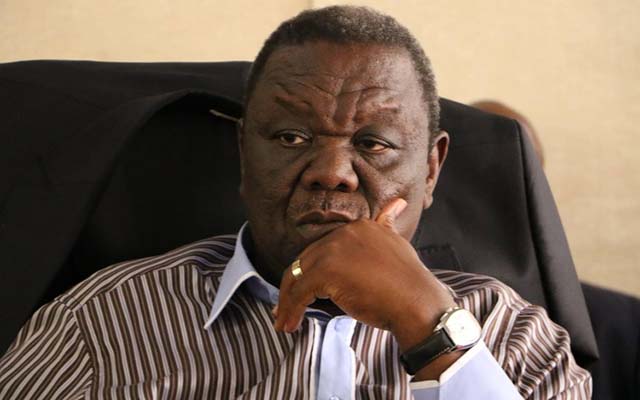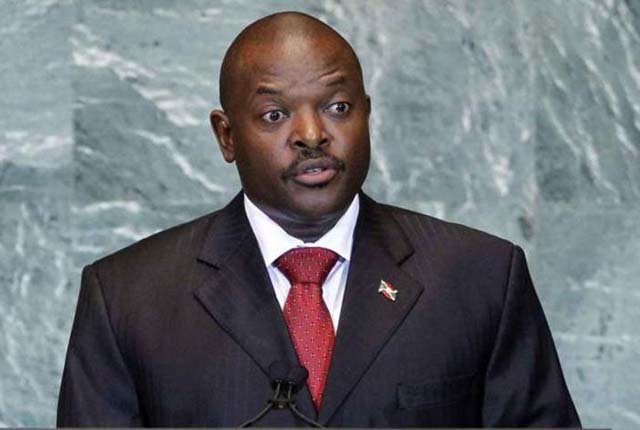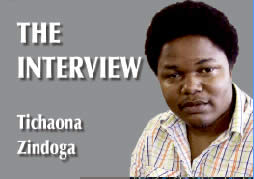RADAR: Zim: Searching for the Big (Wo)Man of opposition

They say the more things change the more they remain the same.
How so true!
It will be critical to note that as far as post colonial discourse on African politics has been concerned, a particular theme — that of decrying “Big Man politics” has had significant currency. Leaders who led their countries to independence from colonial rule have been accused of seeking to entrench their stay in power by whatever means possible. They are said to imagine themselves as the “Big Men” of their polities who are indispensable and have gone on to build personality cults.
Our own President Mugabe is mentioned by those who perceive African politics through these cynical lenses. A whole gamut of academic literature is available to show the extent of this phenomenon. Locally, Tendai Biti has spoken passionately about this phenomenon of “bigmanism”.
At one point a couple of years ago, he decried African politics thus: “So when you come from a war it’s very easy to centralise yourself. So each of the post-independent leaders are these powerful big man (sic) Kwame Nkrumah of Ghana, Mzee Kenyatta in Kenya, Comrade Mugabe in Zimbabwe, Comrade Samora Machel in Mozambique, Comrade Agostinho Neto in Angola.
“These big, big characters who then substitute the state for themselves. Start talking of the central committee substituting themselves for the people and then we get the Politburo substituting for the central committee, which the central committee had long ago substituted for the people.”
The logic is simple. African leaders should have it in their hearts and praxis to leave office as soon as the next contender knocks on the door.
That would be democracy!
Irony
Only this doesn’t seem to register in the very “democratic” institutions these paragons like Tendai Biti lead. In Zimbabwe, we have seen opposition leaders clinging to power even when they have shown to yield diminishing returns. They have even gone on to tinker with their organisations’ constitutions to allow them to continue holding offices beyond their initially stipulated terms.
There is one Morgan Tsvangirai, leader of the Movement for Democratic Change. He has been at the helm of the party for the past 17 years. The constitution of the party held that he was supposed to enjoy two five-year terms and ship off. We should have seen the back of Tsvangirai close to a decade ago.
But we have not.
He tinkered with the party’s constitution to buy more time and as we speak he enjoys a limitless term of office because there is a provision that term limits apply when he gets the State presidency.
Tsvangirai is now a cult himself.
It will interest the reader, as we assume that the reader knows, that the “T” in MDC-T party stands for the leader’s surname. In other words he has personalised it. Who can remove him from “his” party? Many, including Biti, have over the years seen just how difficult this is.
He is the big man and there are even people who are prepared to kill for him. On the other hand there have been such democrats as Lovemore Madhuku and Welshman Ncube who have treated their respective organisations as some kind of fiefdoms and in all this sham congresses are held to try and sanitise the continued reign of the big men!
A big man and a big woman
And the “big man syndrome” is now coming to bear on the much hoped for and much troubled quest for opposition coalition politics in Zimbabwe. The ideal coalition has been touted as that of Morgan Tsvangirai and former Vice President, leader of People First, a woman called Joice Mujuru. The said coalition has the principal aim of removing President Mugabe from power in elections slated for 2018.
There were reasonable prospects for a smooth jump-into-bed agreement between Tsvangirai and Mujuru, even as lately as two months ago, but things are not turning out that way, after all. The idea of who should become the big man, or woman for that matter, has become a contentious issue.
The Tsvangirai camp counts on his large opposition constituency and time in “the trenches”. The Mujuru are touting her experience in Government and her “impeccable” liberation credentials. It is fast becoming a deadlock.
And in these past weeks alone, a mini war is developing as barbs are being exchanged. They soon to stray below the waist area. According to one report, a Joice Mujuru top aide, Dzikamai Mavhaire described Tsvangirai as “an idiot who cannot lead the grand coalition of opposition parties”.
He went on to say: “Mugabe has said (MDC-T leader Morgan) Tsvangirai can’t lead because he did not fight in the liberation struggle, now Mujuru is here. He said Tsvangirai is not educated, Mujuru has a doctorate . . . Let’s have a woman for a change, support one of your own. We (men) are backing you for a change.”
Nelson Chamisa has backed old war horse Tsvangirai.
He is quoted as invoking some village wisdom thus:
“When we group to share a plate of sadza, let’s know that we have the first and last born and in our culture the first born is given the chance to take the first bite, Tsvangirai is the first born.”
Douglas Mwonzora of the same MDC-T says they have “1 000 reasons why Tsvangirai should lead and we have to be convinced otherwise”. It’s all going to be interesting. And, maybe lastly, one would recall a Promise Mkhwananzi decrying Tsvangirai’s “big man syndrome” within the so-called NERA, another banner for attempted consociational opposition politics.
He said: “We will not tolerate any big man syndrome. We will not allow anyone to desperately seek relevance by using other political parties as condoms towards the attainment of their extrication from their crisis that they are facing now as a party.”
It can only get messy between Zimbabwe’s big men and women of opposition, what with Mkhwananzi’s condoms in the mix.
Bring on the popcorn, boy!










Comments